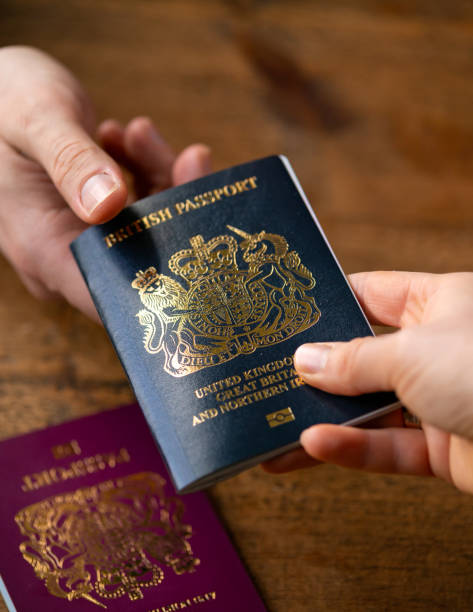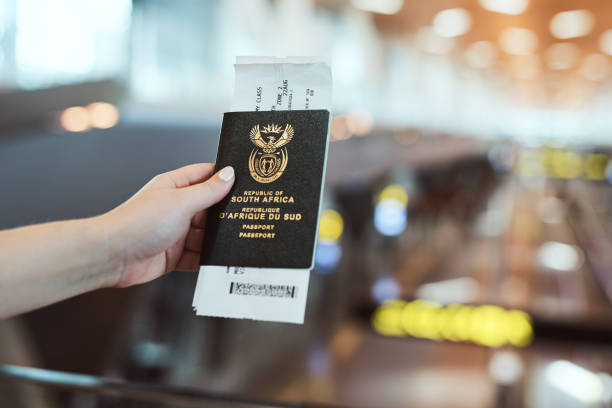How to Get U.S. Citizenship?
Obtaining U.S. citizenship involves a series of steps, including determining eligibility, completing the application, attending the biometrics appointment and interview, and taking the Oath of Allegiance. This guide provides an overview of the process, highlighting key considerations and requirements along the way. It’s important to stay informed, follow instructions carefully, and seek professional assistance if needed. Becoming a U.S. citizen grants various rights and responsibilities, opening doors to new opportunities.
- Determine your eligibility
- Complete the Application
- Submit the Application
- Biometrics Appointment
- Complete the Interview
- Take the Naturalization Test
- Oath of Allegiance
Determine your eligibility:
To determine your eligibility for U.S. citizenship, you should consider the following criteria:
- Age: You must be at least 18 years old to apply for naturalization. However, there are special provisions for individuals who are under 18 and applying for citizenship through their parents.
- Lawful Permanent Resident (LPR) status: Generally, you must hold a Green Card and be a lawful permanent resident of the United States. There are certain residency requirements that must be met before you can apply for naturalization. Typically, you must have lived in the U.S. continuously for at least five years as a Green Card holder, or three years if you are married to a U.S. citizen.
- Continuous residence: You must have maintained continuous residence in the United States. This means you should have been physically present in the U.S. for a certain period of time without any prolonged absences.
- Physical presence: Along with continuous residence, you must also meet specific physical presence requirements. This means you must have been physically present in the U.S. for at least half of the required residency period.
- Good moral character: You must demonstrate good moral character during the period leading up to your naturalization application. USCIS may review your criminal record, tax payments, and other factors to assess your moral character.
- English language proficiency: You should have the ability to speak, read, write, and understand Basic English. This will be tested during the naturalization interview.
- Knowledge of U.S. civics: You must have knowledge of U.S. government and history. The civics test during the naturalization interview assesses your understanding of these topics.
Complete the Application:
To complete the Application for Naturalization (Form N-400), you will need to follow these steps:
- Obtain Form N-400: Download Form N-400 from the official U.S. Citizenship and Immigration Services (USCIS) website (uscis.gov) or request a physical copy by contacting USCIS.
- Read the Instructions: Carefully read the instructions provided with Form N-400. This will help you understand the requirements and provide guidance on filling out the form correctly.
- Fill out the Form: Complete the form accurately and legibly. Provide your personal information, including your name, address, date of birth, Social Security number (if applicable), and contact details. Answer all the questions thoroughly and honestly. The form will ask for details about your immigration history, residence, employment, and other relevant information.
- Provide Supporting Documents: Gather the required supporting documents to submit with your application. This may include photocopies of your Green Card (both front and back), identification documents, photographs, marriage or divorce certificates (if applicable), and any additional documents specified in the instructions.
- Pay the Filing Fee: Include the appropriate filing fee with your application. The fee amount can be found on the USCIS website or in the instructions for Form N-400. USCIS accepts various forms of payment, such as personal checks, money orders, or credit cards. If you are unable to afford the fee, you may be eligible for a fee waiver. Check the instructions for more information on fee waivers.
- Review and Sign the Form: Once you have completed the form, carefully review all the information you provided. Make sure there are no errors or omissions. Sign and date the form where indicated.
- Make Copies: It’s advisable to make copies of the completed form and all supporting documents for your records before submitting them.
- Submit the Application: Send the completed Form N-400, along with the supporting documents and filing fee, to the appropriate USCIS filing location. The address to which you should mail your application can be found in the instructions or on the USCIS website.
Submit the Application
To submit your Application for Naturalization (Form N-400), follow these steps:
- Review Your Application: Before submitting your application, carefully review all the information you provided on Form N-400. Make sure all sections are completed accurately, and there are no errors or omissions.
- Gather Supporting Documents: Ensure that you have included all the required supporting documents as specified in the instructions for Form N-400. This may include photocopies of your Green Card, identification documents, photographs, and any additional documents based on your specific circumstances.
- Prepare the Filing Fee: Ensure that you have the correct filing fee amount for Form N-400. Check the USCIS website or the instructions for the most up-to-date fee information. Prepare the payment in the accepted form, such as a personal check, money order, or credit card, as per USCIS guidelines.
- Make Copies: Before submitting your application, make copies of the entire application packet, including the completed Form N-400, supporting documents, and payment receipt. These copies will serve as your records and can be helpful for reference in the future.
- Mail the Application: Place the completed Form N-400, supporting documents, and filing fee payment (or fee waiver request, if applicable) in an envelope. Ensure that it is properly sealed. Address the envelope to the appropriate USCIS filing location, which can be found on the USCIS website or in the instructions for Form N-400.
- Send via Certified Mail or Courier: It is advisable to use a mailing method that provides tracking and confirmation of delivery. Consider sending your application via certified mail, return receipt requested, or a reputable courier service. This way, you can track the delivery and have proof of submission.
- Keep a Copy of the Mailing Receipt: Once you have sent your application, keep a copy of the mailing receipt or any tracking number provided. This will serve as proof that you have submitted your application within the required timeframe.
- Await USCIS Notification: After submitting your application, you will receive a receipt notice from USCIS. This notice will confirm that your application has been received and provide you with a case number. Keep this notice in a safe place, as you will need it for future reference.
It’s important to note that processing times for naturalization applications can vary, so it’s advisable to regularly check the USCIS website or consult with an immigration attorney for updates on your application status.
Biometrics Appointment
After submitting your Application for Naturalization (Form N-400), you will typically receive a biometrics appointment notice from the U.S. Citizenship and Immigration Services (USCIS). Here’s what you need to know about the biometrics appointment:
- Wait for the Appointment Notice: USCIS will send you a notice with the date, time, and location of your biometrics appointment. This appointment is usually scheduled several weeks after submitting your application.
- Read the Appointment Notice: Carefully review the biometrics appointment notice to ensure you understand all the instructions and requirements. It will provide specific information about what you need to bring to the appointment.
- Prepare for the Appointment: Gather the necessary documents and items required for the biometrics appointment. Typically, you will need to bring the appointment notice itself, a valid form of identification (e.g., your Green Card or passport), and any other documents specified in the notice.
- Attend the Biometrics Appointment: On the scheduled date and time, go to the designated USCIS Application Support Center (ASC) for your biometrics appointment. ASCs are located throughout the United States. Arrive early to allow enough time for security procedures and check-in.
- Biometrics Process: At the ASC, you will undergo the biometrics process, which involves the collection of your fingerprints, photograph, and signature. These biometric identifiers will be used for background checks and to verify your identity.
- Follow Instructions: Cooperate with the USCIS staff and follow their instructions during the biometrics process. They will guide you through the necessary steps and answer any questions you may have.
- Keep the Receipt: After completing the biometrics appointment, you will be given a receipt or notice confirming that you attended the appointment. Keep this receipt for your records, as you may need to refer to it in the future.
- Await Further Notification: Following the biometrics appointment, USCIS will continue processing your naturalization application. The next step will typically involve an interview and the naturalization test.
Complete the Interview:
After the biometrics appointment, the next step in the naturalization process is the interview with a U.S. Citizenship and Immigration Services (USCIS) officer. Here’s what you need to know about completing the interview:
- Wait for the Interview Notice: USCIS will send you a notice with the date, time, and location of your naturalization interview. This notice will typically be sent after your biometrics appointment, but the timing can vary.
- Review Your Application and Study Materials: Before the interview, thoroughly review your Application for Naturalization (Form N-400) and any supporting documents you submitted. Familiarize yourself with the information you provided, as the USCIS officer may ask you questions about it. Additionally, study the study materials for the English and civics tests.
- Gather Required Documents: Prepare the necessary documents to bring to the interview. Typically, you should bring your appointment notice, Green Card, valid passport, and any other documents requested in the notice.
- Arrive Early and Dress Appropriately: Plan to arrive early at the USCIS office or interview location to allow time for security procedures and check-in. Dress appropriately for the interview, presenting yourself in a neat and professional manner.
- Meet with the USCIS Officer: During the interview, you will meet with a USCIS officer who will review your application, ask you questions, and assess your eligibility for naturalization.
- Answer Questions Truthfully: Be honest and provide accurate responses to the officer’s questions. The officer may inquire about your background, immigration history, and the information you provided on the application.
- Language Proficiency Assessment: Your English language skills will be evaluated during the interview through your conversation with the USCIS officer. The officer will assess your ability to speak, read, write, and understand basic English.
- Civics Test: The officer will also administer the civics test, which assesses your knowledge of U.S. history and government. You will be asked questions about specific topics, and you need to provide correct answers. The number of questions asked can vary, but you generally need to answer a minimum number correctly to pass.
- Decision Notification: At the end of the interview, the USCIS officer will inform you of their decision regarding your naturalization application. You may receive an immediate decision or, in some cases, a decision notice will be mailed to you at a later date.
Take the Naturalization Test:
As part of the naturalization interview, you will be required to take the naturalization test, which includes the English language and civics components. Here’s what you need to know about taking the naturalization test:
- English Language Test: The English language test assesses your ability to speak, read, write, and understand basic English. It typically involves a conversation with the USCIS officer conducting the interview. The officer will evaluate your English proficiency based on your responses during the interview.
- Civics Test: The civics test evaluates your knowledge of U.S. history and government. The USCIS officer will ask you questions about specific topics, and you must provide correct answers. The number of questions asked can vary, but you generally need to answer a minimum number correctly to pass.
- Study Materials: USCIS provides study materials to help you prepare for the English language and civics tests. The study materials include the “Civics Test Study Guide,” which contains a list of 100 potential civics questions and answers. Additionally, you can find resources online, such as practice tests and educational materials, to further enhance your knowledge and understanding.
- Practice and Review: Take the time to practice answering the civics questions and engage in conversations in English to improve your language skills. Review the study materials thoroughly to ensure you are familiar with the topics covered in the civics test.
- Be Prepared for the Interview: During the naturalization interview, the USCIS officer will ask you questions from the civics test study guide. Make sure you understand the concepts and can provide accurate answers. Similarly, maintain good communication skills during the interview to demonstrate your English language proficiency.
- Retake Opportunities: If you do not pass the naturalization test on your first attempt, you will have an opportunity to retest. USCIS will schedule a subsequent interview to allow you to retake the test and provide you with another chance to demonstrate your knowledge and language skills.
It’s essential to dedicate sufficient time and effort to studying and preparing for the naturalization test. By familiarizing yourself with the study materials and practicing regularly, you can increase your chances of successfully passing the English language and civics components of the test.
Oath of Allegiance:
The Oath of Allegiance is a significant part of the naturalization process in the United States. It is an oath that individuals take to formally declare their allegiance and loyalty to the country. Here’s what you need to know about the Oath of Allegiance:
- Oath Ceremony: After you have successfully completed the naturalization interview and passed the English language and civics tests, you will be scheduled to attend an oath ceremony. This ceremony is where you will take the Oath of Allegiance.
- Notification: USCIS will send you a notice with the date, time, and location of your oath ceremony. It’s important to attend the ceremony as scheduled, as it signifies the final step in becoming a U.S. citizen.
- Ceremony Format: The oath ceremony can take different formats depending on the location and number of participants. It can be held in a USCIS office, a courtroom, or even a large venue where multiple individuals are naturalized together.
- Oath of Allegiance: During the ceremony, you will be asked to recite the Oath of Allegiance. The oath typically includes a pledge to support and defend the Constitution and laws of the United States, renouncing allegiance to any foreign country, and promising to bear arms for the U.S. military if required.
- Pledge of Allegiance: After reciting the Oath of Allegiance, you may also have the opportunity to recite the Pledge of Allegiance to the U.S. flag. The Pledge is a statement of loyalty and commitment to the United States.
- Certificate of Naturalization: Following the Oath of Allegiance, you will receive a Certificate of Naturalization. This certificate serves as official proof of your U.S. citizenship. Review the certificate carefully and notify USCIS if you notice any errors or discrepancies.
- Rights and Responsibilities: Once you have taken the Oath of Allegiance and received your Certificate of Naturalization, you will have the same rights and responsibilities as any other U.S. citizen. This includes the right to vote, the ability to petition for family members, and the responsibility to uphold the laws of the country.
Conclusion
Becoming a U.S. citizen is a significant milestone that involves several steps and requirements. From determining your eligibility and completing the application to attending the biometrics appointment, interview, and oath ceremony, each stage is crucial in the naturalization process. It’s important to carefully follow the instructions provided by the U.S. Citizenship and Immigration Services (USCIS) and ensure that you provide accurate information and supporting documents.
Throughout the process, it can be helpful to stay informed about the latest updates and requirements from USCIS, as immigration policies and procedures can change over time. Consulting with an immigration attorney or accessing reliable resources can provide additional guidance and support.
Becoming a U.S. citizen grants you numerous rights and opportunities, such as the ability to vote, petition for family members, and enjoy the benefits and protections of being a U.S. citizen. It also comes with responsibilities to uphold the laws and values of the United States.
Remember, the information provided here is a general overview, and specific circumstances may vary. For the most accurate and up-to-date information, it’s essential to consult the USCIS website or seek legal advice. Good luck on your journey to obtaining U.S. citizenship!
FAQs
Q: How long does it take to become a U.S. citizen?
A: The processing time can vary depending on several factors, such as the USCIS workload and your specific circumstances. On average, the process can take anywhere from several months to over a year.
Q: Can I apply for U.S. citizenship if I am married to a U.S. citizen?
A: Yes, being married to a U.S. citizen can make you eligible for naturalization under certain conditions. You must meet residency requirements and demonstrate a good faith marital relationship.
Q: Are there any exceptions to the English language and civics tests?
A: Yes, there are certain exemptions and accommodations available for individuals who are age 50 or older and have been permanent residents for a certain period of time, as well as for those with qualifying medical conditions.
Q: Can I maintain dual citizenship?
A: The United States generally allows dual citizenship, meaning you can retain your original citizenship while becoming a U.S. citizen. However, it’s important to check the laws and regulations of your home country to ensure they allow dual citizenship as well.
Q: Can I travel outside the U.S. during the naturalization process?
A: It is generally advised to avoid international travel during the naturalization process, especially after filing your application. If you need to travel, it’s essential to carefully plan your trips and ensure you meet the residency requirements.
Q: Can I apply for U.S. citizenship if I have a criminal record?
A: A criminal record may affect your eligibility for U.S. citizenship. USCIS considers factors such as the nature and severity of the offense, the length of time since the conviction, and your rehabilitation efforts. It’s best to consult with an immigration attorney in such cases.
Q: Can I apply for U.S. citizenship if I have unpaid taxes?
A: Unpaid taxes can impact your application, as USCIS requires applicants to demonstrate good moral character. It’s important to address any outstanding tax issues before applying for naturalization.






